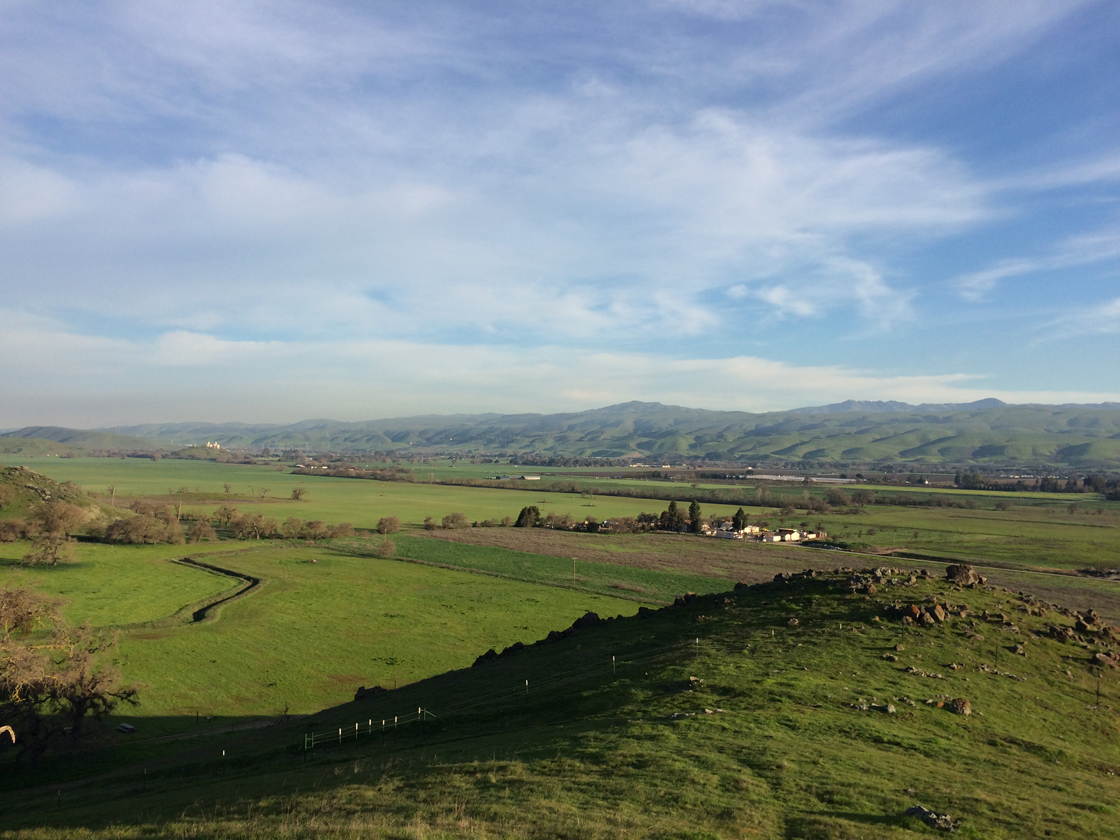A Choice Between Saving the Area for Farms vs Mega-Mansions

San Jose, California, dec. 9, 2021 – In the wake of the San Jose City Council’s November 16 vote to preserve northern Coyote Valley, the Santa Clara County Board of Supervisors will vote on Tuesday, December 14, 2021 on protecting mid and southern Coyote Valley for farming and climate resilience.
“The San Jose City Council vote in November ensured that Coyote Valley would never be used for Amazon-style warehouses,” said Megan Fluke, Executive Director of Green Foothills, a local nonprofit that has worked for over 40 years to preserve the valley. “Now, the County is taking the next step, which is to ensure that Coyote Valley farmland will not be taken over by luxury villas and estate homes for Silicon Valley billionaires.”
The County’s proposal is focused on supporting local agriculture in Coyote Valley by limiting the size of new homes and requiring that, if a new home is built on a larger parcel, at least part of that parcel be used for farming. These changes are intended to prevent conversion of farmland to luxury housing and ensure future development in Coyote Valley is compatible with agriculture.
Coyote Valley is a 7,400 acre valley in southern Santa Clara County, located between San Jose and Morgan Hill. If the Supervisors approve the “Climate Resilience District,” it will help ensure the protection of the portion of the 7400-acre valley that is under the County’s jurisdiction.
“Protecting Coyote Valley farmland supports local climate resilience,” Fluke said. “Farms in the Central Valley are being severely impacted by water shortages, especially in the current drought. It’s more important than ever that we protect our remaining farmland in more temperate areas like Santa Clara Valley, where we still have groundwater available for agriculture.”

This is not the first time Santa Clara County has taken action to protect farmland and local farmers. In 2018, the County’s Agricultural Plan, which received the Governor’s Environmental and Economic Leadership Award (GEELA) for Ecosystem and Land Use Stewardship, was created to support farmland preservation and a vibrant agricultural economy. The County’s vote on Tuesday is part of a slew of actions supporting and implementing that plan, including potential funding in 2022 to conserve farmland and assist small farmers.
In addition to providing open space for farmland, Coyote Valley helps protect urban San Jose from flooding by absorbing overflow from Coyote Creek and its tributaries. Drinking water in underground aquifers is also protected by limiting development in Coyote Valley. It is also essential wildlife habitat that allows animals to move between the Santa Cruz Mountains and the Diablo Range.
The public has consistently shown support for protecting Coyote Valley, as shown by three ballot initiative measures in 2018 in San Jose where voters consistently favored protecting Coyote Valley, and also in 2020’s Santa Clara Valley Open Space Authority’s Measure T, supported by 80% of the public after the Authority made protecting Coyote Valley its priority.
About Green Foothills
Green Foothills is a nonprofit organization dedicated to protecting open space, farmland, and natural resources in San Mateo and Santa Clara Counties. Since 1962, Green Foothills has worked collaboratively to help protect more than 185,000 acres from development, advocating on more than 900 land use issues and 60 ballot measures. Green Foothills envisions a resilient region where wildlife thrives, everyone has natural beauty to enjoy, and communities live in balance with nature. For more information, visit www.greenfoothills.org.
About the Protect Coyote Valley Coalition
Protect Coyote Valley, an environmental campaign by nonprofits and tribes organized by Green Foothills, was key in galvanizing residents across the county and persuading the City Council and County Board to preserve the valley. For more information, visit www.protectcoyotevalley.org.






